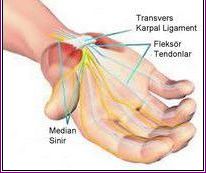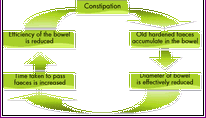
In a layman's view, Carpal wrist tunnel is like a space inside your hand. This space is formed by the bones of your hand. Along the opening, the median nerve, tendons, and tenosynovium pass. These parts are anatomically arranged so that the space is not enlarged. With this normal framework, you will not experience painful sensation. However, tenosynovium may swell for various reasons. In such case, the tunnel is forced to accommodate the swelling tenosynovium, hence giving pressure to the carpal tunnel. As a result, you will feel pain especially while moving your hand. You are then experiencing Carpal tunnel Syndrome (CTS).
When tenosynovium swells, the median nerve is compressed. The median nerve is responsible for giving sensation as well as fine movements to the thumb, index finger, long finger, and half of the ring finger on the palm side. As a result of compression, Carpal tunnel numbness is felt. In such case, it will be difficult to do hand grips and other hand activities. However, there are several ways to treat carpal wrist tunnel numbness. You may choose from the following treatment options for carpal tunnel numbness caused by median nerve compression:
NSAID- Since the cause of carpal tunnel numbness is the compression of the median nerve at the hand area. Then the primary thing you must do is to decompress it. The swelling tenosynovium can be managed by Non-steroidal Anti-inflammatory Drug (NSAID). Basically, it is the drug of choice for Carpal tunnel syndrome. However, you should seek your physician's prescription before taking an NSAID as this can bring gastric irritation and stomach upset.




